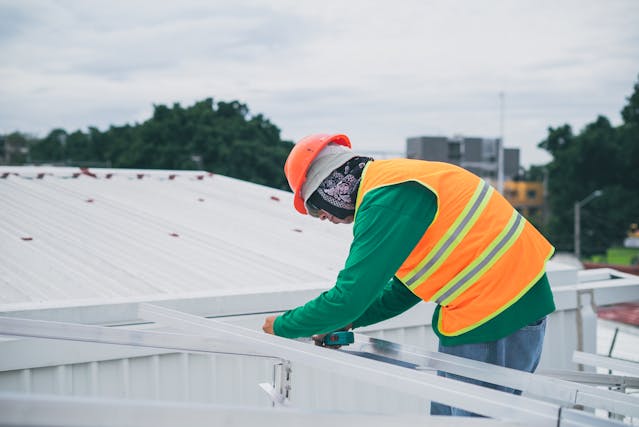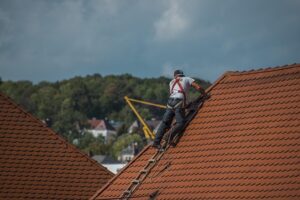
Hiring a roofing contractor isn’t something most people do often. It’s not like ordering dinner or booking a haircut — it’s a serious investment in your home. And unfortunately, the industry has its share of shady operators, poor workmanship, and sky-high quotes that don’t add up. So how do you separate the reliable professionals from the ones who could cause more harm than good? Here’s what to keep your eyes on before signing any contracts.
They’re Pushing You to Decide on the Spot
If a contractor shows up, gives you a quote, and then starts piling on pressure — that’s a red flag.
Maybe they’re offering a “special today-only discount” or hinting that their calendar is filling up fast. That kind of urgency might seem harmless, but good contractors know that homeowners need time to think things through. If someone is pushing too hard, too fast, ask yourself why.
Tip: Take your time. A reputable contractor like https://atriumroofing.com/ won’t mind if you compare quotes or ask more questions. They back themselves because they know they bring good value to the table.
No License or Insurance? Big Problem.
You wouldn’t let an unlicensed driver borrow your car. So why let an unlicensed contractor work on your roof?
In many states, roofing contractors must be licensed. That license shows they’ve met certain standards and are legally allowed to do the job. Even more critical is insurance — both liability and worker’s comp. If they don’t have it, and something goes wrong, the financial risk can fall on you.
Always ask for proof. If they hesitate or dodge the question, walk away.
Vague or Missing Contract Details
Verbal promises mean nothing if they’re not written down. A proper contract should clearly outline:
- Scope of work – What exactly they’re doing
- Timeline – Start and finish dates
- Materials – What kind, what quality, and how much
- Total cost – With no hidden extras
If the contractor shrugs off paperwork or gives you something sloppy and incomplete, that’s a bad sign. You need clear documentation in case anything goes sideways.
They Show Up Right After a Storm
Storm chasers aren’t just a weather term — they’re real in the roofing world, too. After heavy storms or hail, it’s common for out-of-town contractors to roll through neighborhoods offering fast roof repairs. Some might be legitimate, but many are fly-by-night operators who disappear as quickly as they arrive.
You want someone who will still be around months — or years — after the job is done.
Red flag: If they knock on your door out of nowhere with an offer that sounds too good to be true, trust your gut.
The Price Feels Way Off
Whether it’s unusually high or suspiciously low, an off-kilter quote deserves a closer look.
- Too high – Are they overcharging you just because they think you won’t check?
- Too low – Are they cutting corners on labor, materials, or both?
It helps to get at least 2–3 quotes. If one seems way out of line, ask detailed questions. What’s included? What isn’t? A solid contractor will explain their pricing — not just throw out a number and expect you to accept it.
Poor Communication From the Start
If it’s hard to get a callback before the job starts, imagine what it’ll be like if something goes wrong later.
Communication matters. You want a contractor who answers your questions, follows up when they say they will, and keeps you in the loop. Disorganization or radio silence are signs of potential trouble ahead.
Look for someone who treats your time — and your concerns — with respect from the beginning.
They Ask for a Huge Upfront Payment
It’s normal for contractors to ask for a deposit before starting work. But if they want 50% or more upfront? That’s risky.
Why? Because once they’ve got your money, you’ve lost a lot of leverage. The work might get delayed, or worse, never start at all. Most trustworthy contractors ask for a reasonable deposit — often around 10-30% — and then stagger payments based on progress.
Always check local laws too, as some areas cap how much can legally be charged upfront.
No Local References
If a contractor says they’ve done tons of work in your area, they should be able to prove it. Ask for local references — people nearby you can contact who’ve had similar work done. A lack of references, or ones that seem vague or far away, is worth questioning. Even better if you can drive by and take a look at their completed jobs.
They Can’t Answer Basic Questions
You don’t need to be a roofing expert — that’s their job. But when you ask questions about materials, timelines, or warranty options, they should be able to give clear answers. If they’re fumbling through explanations or avoiding specifics, that’s not a good sign. It usually means they’re either inexperienced, unprepared, or hiding something.
Gut Feeling? Don’t Ignore It
Sometimes, even if everything looks fine on paper, something just feels off. Maybe it’s how they talk to you, how they dismiss your concerns, or how they avoid eye contact. Trust that instinct.
You’re putting your home in someone’s hands. It’s okay to want confidence — not just in their skills, but in their character.
What You Want Is Peace of Mind
At the end of the day, it’s not just about shingles and nails. It’s about feeling safe in your home and knowing you’re protected from leaks, storms, and costly repairs down the line.
So be thorough. Ask the tough questions. Compare quotes. And most of all, watch for those red flags. A little caution now can save you a big headache later.


